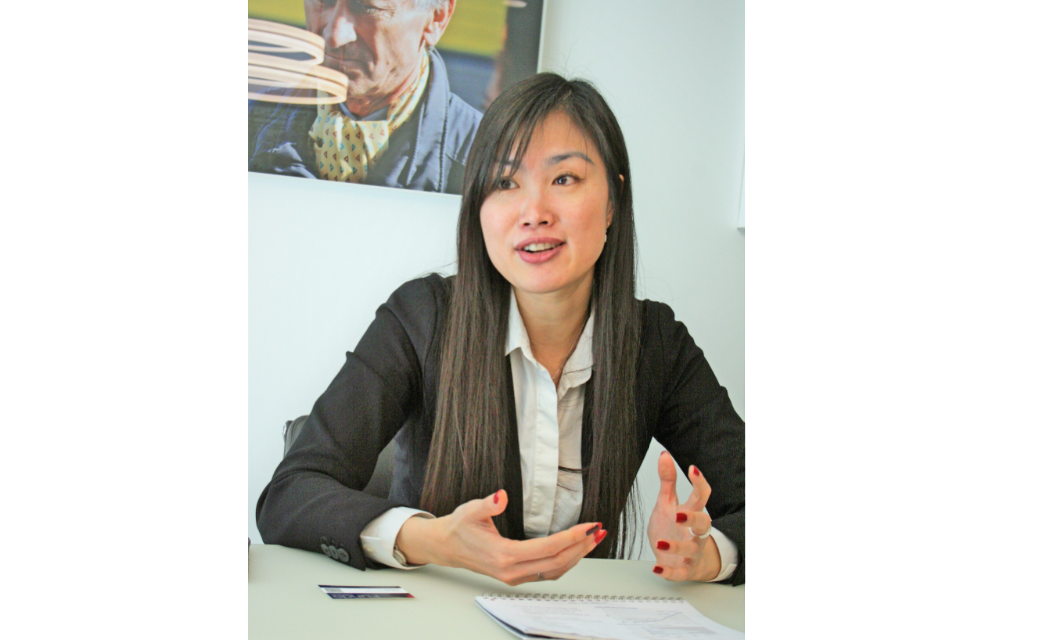According to Luca Paolini, Pictet Asset Management’s (Pictet AM) Chief Strategist, we are living in unprecedented times and this is consequently an unprecedented bear market. To put things in perspective, the cease of economic activity to prevent the spread of the coronavirus has already destroyed 6.6 million jobs in the US economy in the week ending on March 28th. At the peak of the Great Financial Crisis there were 600.000 jobs destroyed, this means the US job market is deteriorating at a rate 10 times faster than in the 2008 -2009 period.
There is a general feeling that the market is overacting, that investors are panicking, but in Paolini’s view, the market is behaving rationally. The market reaction is aligned with the decline in growth experienced by the economy. Approximately, 35% of the world’s population is not allowed to work, an unprecedented territory in which markets are incredibly difficult to navigate.
The performance of different asset classes, measured from market’s peak to month’s end, has revealed some unexpected results. At some point in the sell-off, Global Equities (measured by the MSCI ACWI index) experienced a decline of 35%. Unpredictably, the equity markets that have done the best were Japan and China, with a drop of only 13.6% and 13.8%, respectively. These two markets are the ones that tend to suffer the most when there is a global recession. Conversely, the US stock market, a defensive market by nature, has not performed exceptionally well, suffering a 22.6% drop.
By carefully looking at Global Equity sectors, most of the traditional defensive sectors did well. Additionally, some sectors considered more cyclically, like IT or Mining, did not perform so badly considering the depth of the actual recession.
The comparison of this bear market with any of the previous ones is unfair because the nature of the shock is completely different. The decline in Global GDP, which is of epic proportions, could be potentially close to 20% for the first quarter. The market is already pricing this decline not only in the United States, but also globally.
The good news is that there are already unprecedented monetary and fiscal stimulus in place. The net liquidity injection implemented by G5 central banks is around 10% of nominal global GDP, while the sum of the actual and the announced global fiscal policy stimulus represents a 3.2% of GDP. Basically, the stimulus is 50% greater than that executed during the Great Financial Crisis. A large part of the stimulus is coming from the fiscal side, something that Paolini considers a correct stimulus, since it is not a financial crisis but rather a decline in economic growth.
When will the trough be reached?
This is a health crisis and will continue until the virus is under control, therefore, the key variable to consider is the global infection rate. It is also important to determine who has already passed the virus and now is immunized, as this could help governments to discern which people can return to work and resume normal lives.
The decline in earnings for American companies will be bad but not catastrophic. Pictet AM expects a 30% drop in United States profits, which is roughly the same decline that was experienced between 2008 and 2009.
“The data that will be critical here is the duration of the lockdown. An additional month of global lockdown represents roughly a 10% decrease in corporate earnings. But, for some companies, this drop may be vital. In terms of dividends, the annual growth in dividend per share is implicit in the price of the dividend future and the market is assessing a 35% decrease in dividends worldwide -a drop of 54% and 22% in Europe and United States, respectively”, said Paolini.
It is very difficult to determine when equity markets will hit their lowest point in this bear market. However, from a macroeconomic point of view, almost all the preconditions for a market trough have already been met. The missing elements for the bear market to finally bottom are perhaps more shocking numbers in the US economy, a steeper bond yield curve, and of course, an improvement in the rate of the coronavirus infection. When all these requirements are met, it will be time to return to equities strategically thinking for a five-year horizon, in which US stocks could yield a real return of 5% or 6%.
For now, Pictet AM maintains a cautious stance. Defensive sectors such as pharmaceuticals are overweight, with long positions in gold and Swiss francs. In the fixed income space, after the great widening of the spreads that have occurred, they closed the short position they held in investment grade bonds and decreased their exposure in high yield debt, as a potential and significant increase in default rates is expected.
Possible scenarios of recovery
One possible scenario is a V-shaped recovery in which the coronavirus outbreak will be over in the next 3 – 4 months. However, even in this optimistic scenario, there will be some long-term implications, as there are not many companies and sectors that have strong enough balance sheets to survive in an environment like this.
“Even the Fed has claimed that 25% of small-cap companies in the United States could go out of business if the situation continues for two more weeks. Conversely, there are some incredibly strong names in the tech sector, as the recession has been very favorable to technology, as more online services are consumed during the lockdown. In addition, technology companies have incredibly solid balance sheets”, explained Paolini.
The risk here is that some sectors such as the deep cyclicals (energy, banks or industrials), which normally tend to do well once the recession is over, will have received strong support from the government and the government will probably ask for something in return. A possible dilution of shareholders and nationalization is expected. Dividends, share buybacks and CEO compensation will be under scrutiny.
Finally, if the recovery is U or L-shaped, which Paolini believes is a very likely and fair assumption, investors will take the opportunity to buy very good names at a discount price. In this case, sectors like the pharmaceutical industry and other industries within quality growth will continue to perform well.
“Pharmaceutical stocks are not at very expensive levels, but there is also a risk that the government could impose restrictions if the situation worsens. Online services, internet providers, food producers and the retail sector are the most obvious winners in this bear market. There has already been a market move. However, it is not about choosing sectors, but how solid and resilient a company is. For now, we are maintaining a defensive bias. Depending on how the economic recovery turns out, we will look for deep cyclical or quality growth stocks. Hopefully, the health crisis can be overcome in a few weeks, rather than in the coming months. But it is too early to say”, concluded Paolini.
Important notes
This material is for distribution to professional investors only. However it is not intended for distribution to any person or entity who is a citizen or resident of any locality, state, country or other jurisdiction where such distribution, publication, or use would be contrary to law or regulation.
Information used in the preparation of this document is based upon sources believed to be reliable, but no representation or warranty is given as to the accuracy or completeness of those sources. Any opinion, estimate or forecast may be changed at any time without prior warning. Investors should read the prospectus or offering memorandum before investing in any Pictet managed funds. Tax treatment depends on the individual circumstances of each investor and may be subject to change in the future. Past performance is not a guide to future performance. The value of investments and the income from them can fall as well as rise and is not guaranteed. You may not get back the amount originally invested.
This document has been issued in Switzerland by Pictet Asset Management SA and in the rest of the world by Pictet Asset Management Limited, which is authorised and regulated by the Financial Conduct Authority, and may not be reproduced or distributed, either in part or in full, without their prior authorisation.


